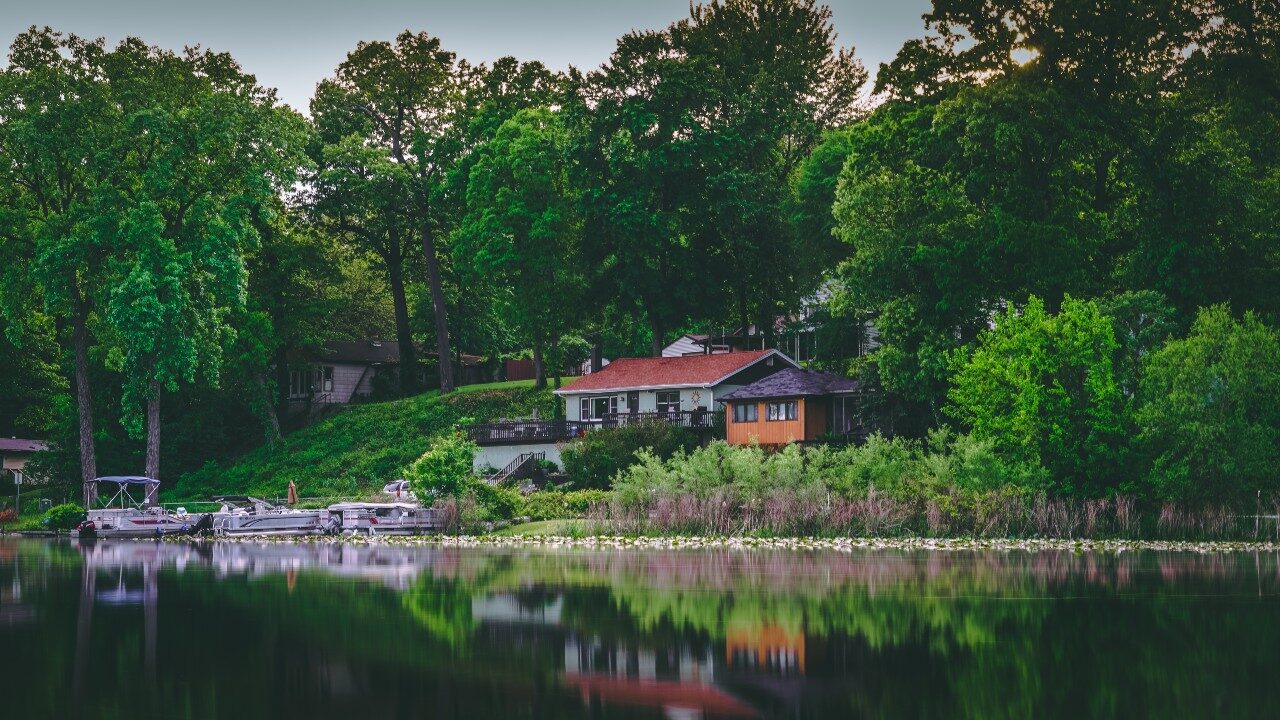
The Pros and Cons of Buying a Lake House
Have you ever fantasized about purchasing a lake home? While waking up to the sound of gently lapping water may sound idyllic, there are a few factors to consider before purchasing a lakeside property. Here’s a list of advantages and disadvantages to think about before deciding to live on the water. Buying Waterfront Property has its advantages, some of the major benefits of owning this type of property include having a lot of exciting activities and having a place that people want to visit.
In Most Cases, Lakefront Property Is a Good Investment
Only a small number of lake properties are accessible, and this scarcity, along with high demand, can make lake properties or second homes attractive as an investment as well as a holiday destination. When it comes to finding the ideal site to buy a lake house, certain areas are better investments than others. Make sure you have a professional to inspect the area to ensure the earth is stable and the waterline is not rising. If your property is in a desirable location, well-built, and situated on sustainable land, its value is likely to rise.
If you want to be near the water while also having a valuable investment, look for houses that are not directly on the water and can withstand the difficulties of climate change and its impact on real estate prices. You can even rent out your second property for up to 180 days each year when you’re not using it, which increases the investment possibilities. The sole requirement is that if you rent out the property, you must utilize it for personal purposes for at least 14 days or 10% of the days it would otherwise be rented at fair market value. When assessing whether your vacation home qualifies for the home mortgage interest deduction, the IRS employs the same rental standards.
It’s As If You’re Always on Vacation
Whether you’re looking to buy a vacation home or a permanent property, your waterfront home will make you feel like you’re on vacation. The temptation of water pastimes will be staring you in the face, right in your own backyard, without the barrier of a long trip to outdoor leisure locations! You’ll probably want to spend more time outside, taking advantage of the health benefits of fresh air and increased exercise.
In addition, those who live on the sea may feel more at ease and content. A spectacular view is often connected with a high-value property. This motivates individuals to spend more time outside – and to be grateful for what they have. These “vacation vibes” will boost your long-term enjoyment and make you feel like you’re on vacation all year.
Water Sports Proximity
Water sports are related with several bodies of water. If you live on a tranquil canal in Florida, you might want to invest in a kayak or stand-up paddleboard to keep yourself active. If you live near a lake, you might want to try your hand at fishing or boating. Whatever your favorite water sport is, being on the water can give you more time to enjoy it while also keeping you healthy.
The Cons of Purchasing Waterfront Real Estate
Of course, owning a waterfront property is not without its drawbacks. Here are a handful of the most significant setbacks we have observed.
Expenses for Wear and Tear
When you live by the water, you have very little protection from the weather. The dampness from the lake may deteriorate the components in your home, and people tracking in sand and water frequently may cause inside damage. A house near a body of water is also more vulnerable to storms, mist, and natural calamities. If you’re buying a house, make sure the inspector looks for the wear and tear that comes with beachfront properties.
A waterfront property will almost certainly require more maintenance than an inland property. It’s crucial to keep in mind that this will almost certainly result in increased costs and time spent on home maintenance and upkeep. For example, your waterfront property may have docks or retaining walls that require frequent repair.
Increased Insurance and other Expenses
When buying a lake property, it’s crucial to keep in mind that your home will come with its own set of fees. Some waterfront properties, for example, have unique flood insurance needs. There may be groups that not only limit what you may do with your land but also charge you a yearly fee. Because lakefront homes are rarely located in densely populated areas, utility costs can quickly build up.
Furthermore, because of the potential of injury to inhabitants or the property, insurance for lakefront properties is often substantially higher. The sort of coverage you need may be mandated by local regulations or even a lender. Regardless, flood insurance is a must-have. In the best-case scenario, you are never significantly inconvenienced. If you don’t have flood insurance, the serene vibe you’ve been chasing can easily be obscured by the fear of approaching financial disaster.
Flood insurance is divided into two categories:
- FEMA-backed National Flood Insurance Program (NFIP): NFIP is only offered to certain qualifying towns and has a $250,000 coverage maximum. Keep in mind that the National Flood Insurance Program (NFIP) will not pay the costs of staying in temporary housing until your house is safe to reside in again. It also doesn’t cover damage to property that isn’t related to your house, such as boat decks, hot tubs, and septic systems.
- Private insurance: Private insurance is required by law to provide coverage comparable to the NFIP. You can insure for more than the NFIP’s $250,000 coverage limit using private insurance. Private flood insurance may be the way to go if rebuilding your ideal lake house will be more expensive.
Finding Your Dream Lakefront Home is the Bottom Line
Even though they have a high resale value, lakefront properties have a lot of factors to consider. If you’re willing to pay a little extra for insurance and other fees in exchange for a home that can withstand the elements, you’re off to a good start. If your home has wonderful views, is well-built, and is not expected to be harmed by climate change, it will likely rise in value over time and be a good investment.
You should decide how you want to classify the property before applying for a mortgage. If you want to spend the most of your time at the lake house, you should categorize it as a primary residence. If you want to use the house as a vacation retreat, it is considered a secondary dwelling. It could be regarded as an investment property if you plan to rent it out, depending on the length of the rental and the ratio of personal usage to rental time.

